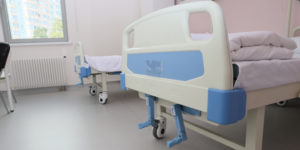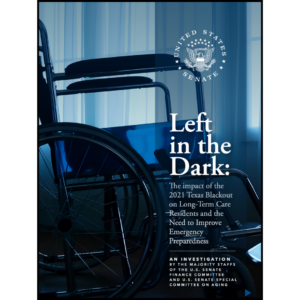Study: Do ‘soft’ floors reduce falls?
Fall injuries are common in nursing home environments and often result in head injuries or hip fractures that can severely affect quality of life. The Centers for Disease Control and Prevention note that “one of every three adults older than age 65 falls each year,” estimating the medical costs of falls to be $34 billion annually.
An experimental study conducted in Sweden and recently published online in Injury Prevention looked at the effect impact-absorbing flooring had on minimizing injuries from falls. The study involved elderly female residents of nursing homes where “soft” flooring had been installed in various areas of the building.
This specialized flooring is a 12-mm thick closed cell flexible polyurethane/polyurea composite tile with an exterior surface of polyurethane/polyurea. The researchers analyzed the injury from falls on impact-absorbing flooring compared with falls on regular flooring from results from the study period (Oct. 1, 2011 through March 31, 2014). Staff reported 254 falls on regular flooring and 77 on impact-absorbing tiles. Findings were adjusted for age, body mass index, visual and cognitive impairments.
Researchers found that the spongy flooring tiles reduced the force of a fall by 65 to 80 percent compared with hard concrete floors. The tiles, however, are not approved for wet areas, such as bathrooms, according to the manufacturer.
Results indicate that most injuries were minor; only one or two percent resulted in hip fracture.
“The use of this type of flooring is still in an experimental stage, but there are some ongoing trials around the world,” lead author Johanna Gustafson of Karlstad University in Sweden said in an article. “Many aspects have to be considered for floorings in care settings: work environment, maintenance and hygiene, to mention a few.”

Sandra Hoban was on I Advance Senior Care / Long-Term Living’s editorial staff for 17 years. She is one of the country’s longest-serving senior care journalists. Before joining Long-Term Living, she was a member of the promotions department at Advanstar Communications. In addition to her editorial experience, Sandi has served past roles in print and broadcast advertising as a traffic and talent coordinator.
Related Articles
Topics: Clinical , Risk Management











